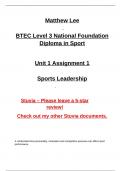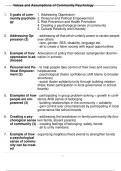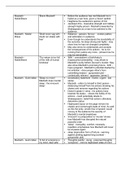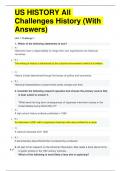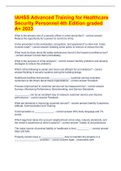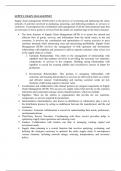Case
BTEC Sport Level 3 Unit 6 A3 Sports Psychology
- Module
- Unit 6 A3 Sports Psychology
- Institution
- PEARSON (PEARSON)
A Understand how personality, motivation and competitive pressure can affect sport performance A1 Personality factors and assessment of personality A2 Motivational factors A3 Arousal – performance relationship theories under competitive pressure A4 Stress, anxiety and sports performance un...
[Show more]
